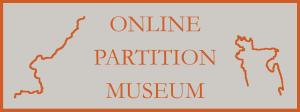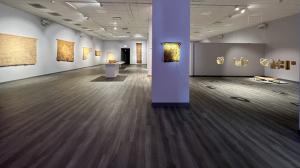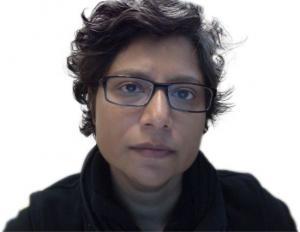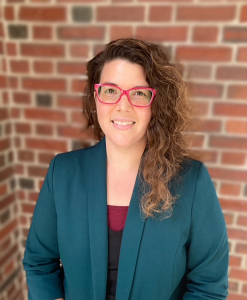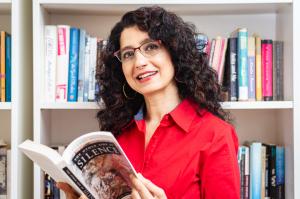The Online Partition Museum, a virtual museum of art raises awareness about the Partitions of the Indian subcontinent through innovative visual art exhibitions.
— Salima Hashmi
CHICAGO, IL, UNITED STATES, February 2, 2023 /EINPresswire.com/ — The Counter-Memory Project, a non-profit organization, has launched the Online Partition Museum, a virtual museum of art dedicated to memorializing and raising awareness about the partitions of the Indian subcontinent through innovative visual art exhibitions.
Partitions of Indian Subcontinent
The Indian subcontinent has been subjected to several intertwined partitions as a result of the British colonial rule – the Partition of India in 1947; the Bangladesh Liberation War in 1971, which resulted in the partition of Pakistan to create Bangladesh; the ongoing and unresolved conflict in Kashmir since 1947 which has unofficially partitioned Kashmir into several distinct zones; the partition of Burma in 1937, now called Myanmar; the partitions of Bengal in 1905 and 1947; and the partition of Assam and the Northeast in 1947.
The partitions of the Indian subcontinent have been extremely bloody and violent and marked by intense civil and military wars, mass forced migrations, and the use of rape as a weapon to humiliate and wound the other community. Kashmir has been a conflict zone since 1947, and has been under Army rule since 1989. It continues to be one of the most highly militarized zones of the world. The Northeast part of India has similarly been under Army rule since 1954. Myanmar has been in a state of political turmoil since its inception, and the Rohingya genocide is a direct consequence of the partition of Burma.
The 1947 partition pf India resulted in the deaths of over 2 million people, over 20 million people crossed the new border, and over 300,000 women were abducted and raped. The 1971 war resulted in the deaths of over 3 million people, over 30 million people were internally or internationally displaced, and over 400,000 women were subjected to sexual violence by the Pakistani army. Kashmir has been a conflict zone since 1947, which has resulted in over 150,000 deaths, over 500,000 people have been internally displaced, and over 11,000 cases of rape have been reported. The political turmoil in Myanmar has resulted in over 25,000 deaths of Rohingya people, over a million Rohingya have fled to Bangladesh, and over 5,000 cases of rape have been reported.
Goal of the Online Partition Museum
The Online Partition Museum takes a holistic view of these fractured geopolitics of the Indian subcontinent, and its goal is to reveal the deep and often invisible interconnections between these intertwined partitions separated by time and space. It is dedicated to memorializing each of these partitions through innovative visual art exhibitions. In addition, the Online Partition Museum raises awareness by educating South Asian and non-South Asian audiences about these complex events through educational programming that helps diverse audiences understand and appreciate the nuances of and the tangled threads between these partitions in a space of compassionate empathy.
Why a Virtual Partition Museum?
Salima Hashmi, a renowned artist, curator, activist, and cultural leader based in Pakistan, thoughtfully articulated the need for a virtual Partition museum in an interview –
“Where should a Partition museum be? It should be a virtual museum so that everybody can contribute, so you don’t have to physically go to a place in one of these countries, because then always there will be the dominant narrative, and we don’t want a dominant narrative. We want a balanced narrative which sees all aspects of all the partitions. And therefore, I like the idea of a virtual museum. That would be the museum to actually pursue, where you could have all of our stories in a virtual museum that spans the continents, and does not acknowledge any divides.”
Hashmi went on to reveal in the interview that she was on the advisory board of the Partition Museum in Amritsar in India, but was not able to visit it because she wasn’t able to get a visa to visit India. And the border situation being what it is in South Asia, this is a common issue for a lot of people. If a Partition Museum is physically located in one country, it may well be inaccessible to people of the other countries, and it will be heavily inflected to the political narrative of that country.
Founders of the Online Partition Museum
The Online Partition Museum has been founded by scholars and artists that have a deep understanding of the partitions of the Indian subcontinent, and related fields of contemporary visual art, trauma studies, memory studies, memorializing interventions, feminist studies, and museum studies. The collective skill sets, perspectives and competencies of the founding board members positions the Online Partition Museum to create a unique platform to address South Asian and non-South Asian audiences in a meaningful manner.
Rini Bhattacharya Mehta
Rini Bhattacharya Mehta is an Associate Professor of Comparative Literature and of Religion at the University of Illinois at Urbana-Champaign, and an affiliate of National Center for Supercomputing Applications. Mehta works on the evolution and synthesis of modernity; nationalism, religious revival, cinema and the post-global nation state.
Her book on Indian cinema, “Unruly Cinema: History, Politics, and Bollywood” was published by University of Illinois Press in June 2020. She has published two co-edited anthologies: “Bollywood and Globalization: Indian Popular Cinema, Nation, and Diaspora” (Anthem Press, 2010) and “Indian Partition in Literature and Films: History, Politics, Aesthetics” (Routledge, 2014).
One of the recipients of University of Illinois’s first Presidential Initiative to Celebrate the Impact of the Arts and the Humanities, she is the creator of a Digital Humanities Project on Global Film History. She is currently a LAS fellow in the second discipline (2021-2023), studying Computer Science.
Jacque Micieli-Voutsinas
Jacque Micieli-Voutsinas, PhD, is an Assistant Professor and Co-Director of the Graduate Program of Museum Studies at the University of Florida, Gainesville.
Jacque is a critical museum and heritage studies scholar with research and teaching expertise on 9/11 memory and landscapes of terrorism, broadly defined. Her research program explores the evocative power of places of difficult heritage to cultivate public emotion (such as fear, empathy, and hope) and generate a collective sense of community in the wake of traumatizing events.
She is particularly interested in trauma-informed museum practices and the pedagogical power of heritage landscapes to advance or impede social change. Drawing on anti-racist, queer, and feminist theories of intersectionality, affect, and emotion, her work on heritage landscapes critically interrogates dominant narratives of cultural memory and questions of historical justice.
Her book “Affective Heritage and the Politics of Memory after 9/11: Curating Trauma at the Memorial Museum” was published by the Routledge Press in 2021. She has also published an edited anthology “Affective Architectures: More-Than-Representational Geographies of Heritage” (Routledge, 2021).
Pritika Chowdhry
Pritika Chowdhry is an artist, and curator whose artworks are in public and private collections. Pritika recently did her mid-career solo retrospective at the South Asia Institute in 2022. Pritika has exhibited her works nationally and internationally in group and solo exhibitions in the Weismann Museum in Minneapolis, Queens Museum in New York, the Hunterdon Museum in New Jersey, the Islip Art Museum in Long Island, Visual Arts Center of New Jersey, the DoVA Temporary in the University of Chicago, and the Brodsky Center in Rutgers University.
Pritika’s works have been reviewed in national press, and scholarship about her work has been published in peer-reviewed research publications and various exhibition catalogs. Pritika is the recipient of a Vilas International Travel Fellowship, an Edith and Sinaiko Frank Fellowship for a Woman in the Arts, a Wisconsin Arts Board grant, and a Minnesota State Arts Board grant.
Born and brought up in India, Pritika is currently based in Chicago, IL, USA. Pritika has an MFA in Studio Art and an MA in Visual Culture and Gender Studies from UW-Madison. Pritika has taught at Macalester College and College of Visual Arts, both in St. Paul, Minnesota.
Online Partition Museum
Counter-Memory Project
+1 312-945-8466
email us here
Visit us on social media:
Instagram
Facebook
Twitter
LinkedIn
YouTube
TikTok
The Online Partition Museum is a virtual museum of art about the Partitions of the Indian subcontinent featuring innovative virtual art exhibitions.
![]()



